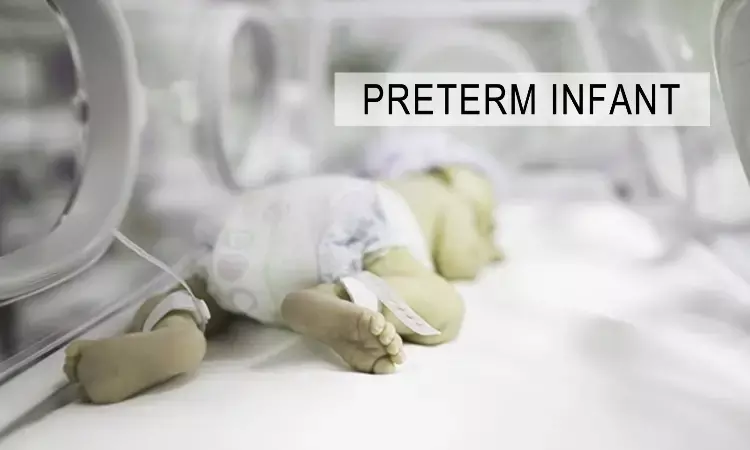- Home
- Medical news & Guidelines
- Anesthesiology
- Cardiology and CTVS
- Critical Care
- Dentistry
- Dermatology
- Diabetes and Endocrinology
- ENT
- Gastroenterology
- Medicine
- Nephrology
- Neurology
- Obstretics-Gynaecology
- Oncology
- Ophthalmology
- Orthopaedics
- Pediatrics-Neonatology
- Psychiatry
- Pulmonology
- Radiology
- Surgery
- Urology
- Laboratory Medicine
- Diet
- Nursing
- Paramedical
- Physiotherapy
- Health news
- Fact Check
- Bone Health Fact Check
- Brain Health Fact Check
- Cancer Related Fact Check
- Child Care Fact Check
- Dental and oral health fact check
- Diabetes and metabolic health fact check
- Diet and Nutrition Fact Check
- Eye and ENT Care Fact Check
- Fitness fact check
- Gut health fact check
- Heart health fact check
- Kidney health fact check
- Medical education fact check
- Men's health fact check
- Respiratory fact check
- Skin and hair care fact check
- Vaccine and Immunization fact check
- Women's health fact check
- AYUSH
- State News
- Andaman and Nicobar Islands
- Andhra Pradesh
- Arunachal Pradesh
- Assam
- Bihar
- Chandigarh
- Chattisgarh
- Dadra and Nagar Haveli
- Daman and Diu
- Delhi
- Goa
- Gujarat
- Haryana
- Himachal Pradesh
- Jammu & Kashmir
- Jharkhand
- Karnataka
- Kerala
- Ladakh
- Lakshadweep
- Madhya Pradesh
- Maharashtra
- Manipur
- Meghalaya
- Mizoram
- Nagaland
- Odisha
- Puducherry
- Punjab
- Rajasthan
- Sikkim
- Tamil Nadu
- Telangana
- Tripura
- Uttar Pradesh
- Uttrakhand
- West Bengal
- Medical Education
- Industry
Dobutamine and milrinone equally effective in PLCS in preterm infants: Study

Recent research shows that Inotropic drugs like Dobutamine and milrinone possess similar therapeutic effects in the treatment of post ligation cardiac syndrome in preterm infants. The study was published in the journal, American Journal of perinatology, 2020.
Patent ductus arteriosus is associated with many complications like neonatal morbidity, necrotizing enterocolitis, bronchopulmonary dysplasia, hemorrhagic pulmonary edema, retinopathy of prematurity, and death. Drugs like prostaglandin inhibitors are generally used for closure, but if they are unsuccessful then ligation is recommended. The post PDA ligation can often be complicated due to acute respiratory and hemodynamic instability. Inotropic drugs are generally used to maintain stability. Myocardial dysfunction secondary to vascular tone dysregulation often prompts the use of inotropic drugs.
Researchers from Erciyes University Medical Faculty, Kayseri, Turkey conducted a study to detect the therapeutic effect of dobutamine or milrinone which are the two main medicines suggested in the treatment of post ligation cardiac syndrome (PLCS).
The authors conducted a retrospective review of a cohort of infants with PLCS between March 2012 and December 2018. There were two groups dobutamine study group-DSG and milrinone study group-MSG. Both before and after ligation parameters like respiration, cardiac, echocardiography, and perfusion were assessed. Based on the data, both the effects of the medicines on PLCS and the difference between their therapeutic effects were studied.
The key findings of the research were:
• PLCS was detected in 29 (34.1%) of 85 patent ductus arteriosus ligation cases in total.
• Of all the PLCS cases, 13 (44.8%) were treated with dobutamine and 16 (55.2%) with milrinone.
• It was observed that the effects of the medicines on the respiratory system and cardiovascular system manifested in the third and 6th hour, respectively.
• It was detected that both medicines had more effect on the systolic blood pressure (SBP) than on the diastolic blood pressure.
• Thus, the researchers concluded that Dobutamine and milrinone, two primary medicines that can be used in the treatment of cases with PLCS, possess similar therapeutic effects on this pathology.
The study "Which Inotropic Drug, Dobutamine or Milrinone, Is Clinically More Effective in the Treatment of Post ligation Cardiac Syndrome in Preterm Infants?" was published American Journal of Perinatology, 2020.
BDS, MDS
Dr.Niharika Harsha B (BDS,MDS) completed her BDS from Govt Dental College, Hyderabad and MDS from Dr.NTR University of health sciences(Now Kaloji Rao University). She has 4 years of private dental practice and worked for 2 years as Consultant Oral Radiologist at a Dental Imaging Centre in Hyderabad. She worked as Research Assistant and scientific writer in the development of Oral Anti cancer screening device with her seniors. She has a deep intriguing wish in writing highly engaging, captivating and informative medical content for a wider audience. She can be contacted at editorial@medicaldialogues.in.
Dr Kamal Kant Kohli-MBBS, DTCD- a chest specialist with more than 30 years of practice and a flair for writing clinical articles, Dr Kamal Kant Kohli joined Medical Dialogues as a Chief Editor of Medical News. Besides writing articles, as an editor, he proofreads and verifies all the medical content published on Medical Dialogues including those coming from journals, studies,medical conferences,guidelines etc. Email: drkohli@medicaldialogues.in. Contact no. 011-43720751


